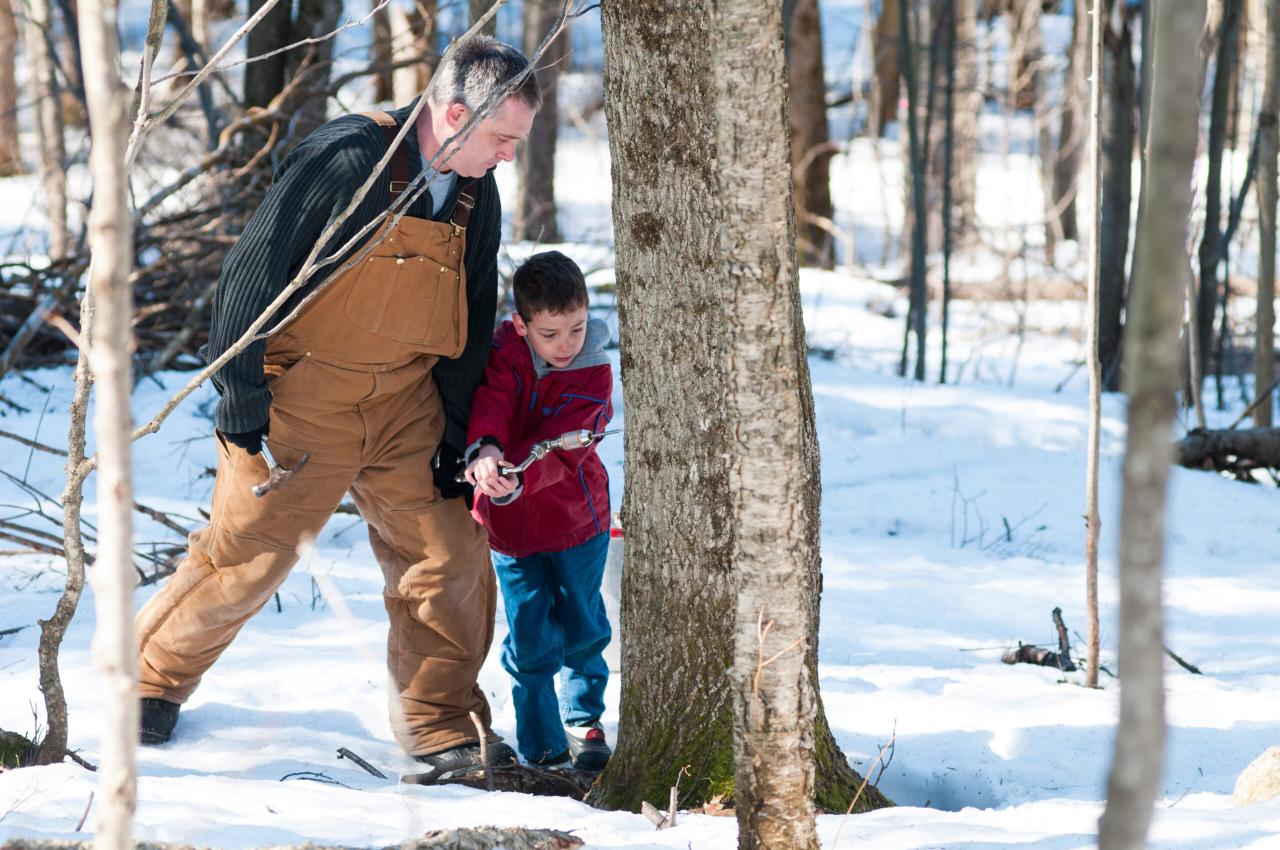Instagram, blessures, poursuites et agrotourisme : l’Ontario légifère – this phrase perfectly captures the current legal landscape surrounding Ontario’s booming agritourism sector. The rise of Instagram marketing has created exciting opportunities for farms to connect with customers, but it also introduces new legal risks. This exploration dives into how Instagram’s visual power influences agritourism, the potential for injuries and subsequent lawsuits, and the evolving legislation designed to balance growth with safety.
We’ll unpack the legal minefield, offering practical advice for businesses navigating this digital age.
From stunning photos of pumpkin patches to videos showcasing farm-to-table experiences, Instagram has become a crucial marketing tool for Ontario agritourism. However, this visual platform isn’t without its challenges. Attractive images can inadvertently mask safety hazards, leading to accidents and costly lawsuits. Ontario’s legislation is constantly adapting to address these issues, aiming to protect both businesses and consumers.
This discussion will examine real-world scenarios, explore legal precedents, and provide actionable strategies to minimize risk and maximize the benefits of Instagram marketing.
Instagram, Legal Issues, and Agritourism in Ontario: Instagram, Blessures, Poursuites Et Agrotourisme : L’Ontario Légifère

Ontario’s agritourism sector is booming, and Instagram plays a significant role in its success. However, the use of social media also introduces legal risks. This article explores the intersection of Instagram marketing, legal liabilities, and Ontario’s agritourism legislation, offering insights and best practices for businesses to thrive while mitigating potential risks.
Instagram’s Role in Ontario Agritourism
Ontario agritourism businesses heavily leverage Instagram for marketing and customer engagement. They utilize diverse content strategies to showcase their offerings and build brand awareness.
Ontario’s new laws on Instagram, injuries, lawsuits, and agritourism are pretty complex, right? It’s a lot to keep track of, especially when you’re also trying to catch up on the latest football scores. For example, check out this recap of Liverpool’s dominant 3-1 win against Leicester: Liverpool 3-1 Leicester: Cody Gakpo, Curtis Jones and Mohamed. After that exciting match, it’s back to focusing on how these new Ontario regulations might impact social media influencers and agritourism businesses.
- Content Types: High-quality photos of picturesque farms, vibrant produce, and happy customers are commonplace. Videos showcasing farm activities, behind-the-scenes glimpses, and time-lapses of seasonal changes are also popular. Instagram Stories are used for quick updates, promotions, and interactive Q&A sessions.
- Influencer Marketing: Many businesses collaborate with food bloggers, travel influencers, and family-friendly content creators to reach a wider audience. Successful campaigns often involve sponsored posts, giveaways, and exclusive experiences.
- Successful vs. Unsuccessful Strategies: Successful businesses often employ consistent branding, high-quality visuals, engaging captions, and strategic use of hashtags. They actively respond to comments and foster a sense of community. Unsuccessful strategies often involve infrequent posting, low-quality images, lack of engagement, and inconsistent branding.
Legal Liabilities and Risks in Ontario Agritourism
Agritourism businesses in Ontario face several legal risks related to visitor safety and liability. Understanding these risks is crucial for effective risk management.
- Common Legal Risks: These include slip-and-fall accidents, injuries from farm equipment, animal-related incidents, and inadequate safety measures. Failure to adequately warn visitors about potential hazards can lead to significant legal repercussions.
- Frequent Injuries: Common injuries include fractures, sprains, lacerations, and animal bites. The severity of injuries can vary greatly depending on the activity and the circumstances of the accident.
- Legal Precedents: Several lawsuits have been filed against Ontario agritourism businesses due to visitor injuries. These cases often highlight the importance of adequate safety precautions, clear signage, and comprehensive liability insurance.
Hypothetical Case Study: A Potential Lawsuit
A family visits a pumpkin patch. A child falls into an uncovered ditch while running through the field, resulting in a broken leg. The parents sue the farm, claiming negligence due to inadequate safety measures (lack of fencing or warning signs near the ditch).
| Parties Involved | Type of Injury | Legal Arguments |
|---|---|---|
| Parents (Plaintiffs) vs. Farm Owners (Defendants) | Broken leg (child) | Negligence due to inadequate safety measures; failure to warn of foreseeable danger. |
Ontario’s Legislation Regarding Agritourism and Liability
Ontario’s legislation regarding agritourism and liability aims to balance the promotion of this growing sector with the need to protect both businesses and visitors. The Occupiers’ Liability Act is the primary legislation that applies.
- Key Aspects: The legislation defines the duty of care owed by landowners to visitors, differentiating between different classes of visitors (e.g., invitees, licensees, trespassers). It emphasizes the need for reasonable care to prevent accidents.
- Protection of Businesses and Customers: The legislation provides a framework for determining liability in case of accidents. It allows for businesses to be held liable for negligence, but also provides defenses if reasonable care was taken.
- Insurance Implications: Agritourism businesses need comprehensive liability insurance to protect themselves against potential lawsuits. The amount of coverage needed will depend on the specific activities offered and the level of risk involved.
- Comparison with Other Provinces: While the specific details may vary, most provinces have similar legislation based on the principles of occupiers’ liability. The key is demonstrating reasonable care to prevent foreseeable harm.
The Intersection of Instagram, Legal Issues, and Agritourism
Instagram posts can inadvertently create legal issues for Ontario agritourism businesses if not carefully managed. Misrepresentation of activities, safety concerns, and misleading information can lead to lawsuits.
- Examples of Legal Issues: An Instagram post showing an activity without highlighting safety measures could be seen as misrepresentation. A photo depicting unsafe practices (e.g., children near farm equipment) could expose the business to liability.
- Best Practices:
- Always clearly disclose potential risks and safety measures.
- Use high-quality images and videos that accurately represent the activities.
- Avoid posting content that could be interpreted as misleading or deceptive.
- Ensure all safety protocols are followed during filming or photography.
- Regularly review and update your safety procedures and signage.
- Preventing Lawsuits: Clear, accurate, and up-to-date information on Instagram can significantly reduce the likelihood of lawsuits. It sets realistic expectations and highlights safety measures.
Visual Representation of Risks and Mitigation Strategies, Instagram, blessures, poursuites et agrotourisme : l’Ontario légifère

Visuals can effectively communicate safety procedures and potential hazards.
- Safe Farm Activity Image: A photo of children picking apples in an orchard, with clear signage indicating the path and safety instructions. The image showcases appropriate supervision and safe practices.
- Unsafe Farm Activity Image: A picture depicting children playing near a tractor without adult supervision. The image highlights the potential for serious injury and the lack of safety precautions.
- Infographic: An infographic summarizing Ontario’s Occupiers’ Liability Act as it applies to agritourism, detailing the duty of care, different classes of visitors, and the implications for liability.
- Visual Guide: A visual guide for agritourism businesses on using Instagram responsibly and legally. This would include examples of safe and unsafe posts, best practices for content creation, and legal considerations.
Final Wrap-Up

Navigating the intersection of Instagram marketing, legal liabilities, and agritourism in Ontario requires a proactive and informed approach. While Instagram offers powerful tools for promoting your farm, understanding the legal implications of your online presence is crucial. By implementing clear safety measures, accurately representing your offerings, and staying updated on relevant legislation, Ontario agritourism businesses can harness the power of social media while mitigating potential risks.
Ontario’s new laws on agritourism are a good thing, addressing issues like Instagram-fueled injuries and subsequent lawsuits. But while we’re focusing on farm safety, let’s take a quick break – check out this crazy rumour: Is Dua Lipa Engaged to Callum Turner? A New Pics Are Making Her. Back to the serious stuff: These new regulations aim to protect both farmers and visitors, hopefully preventing future legal battles.
Remember, a visually appealing Instagram feed is only as effective as a legally sound operation.
Popular Questions
What types of insurance are recommended for Ontario agritourism businesses using Instagram?
Liability insurance is crucial, covering potential injuries on your property. Consider adding professional liability insurance to protect against claims related to misrepresentation or negligence in your online marketing.
How can I ensure my Instagram content complies with Ontario’s agritourism legislation?
Clearly display safety warnings and instructions. Accurately represent your services and avoid making misleading claims. Regularly review your content for potential legal issues.
What are the penalties for non-compliance with Ontario’s agritourism legislation?
Ontario’s new laws tackling Instagram influencers promoting unsafe agritourism activities, including liability for injuries and lawsuits, highlight a growing trend. This regulatory push is interesting considering the labor issues facing other sectors; for example, read about the challenges facing the agricultural industry in this article: Cracks appear in Maga world over foreign worker visas. The need for clear regulations and responsible practices extends beyond just Instagram and agritourism, impacting various industries relying on workers.
Penalties can vary, ranging from fines to lawsuits and even business closure. Compliance is essential to protect your business and reputation.
